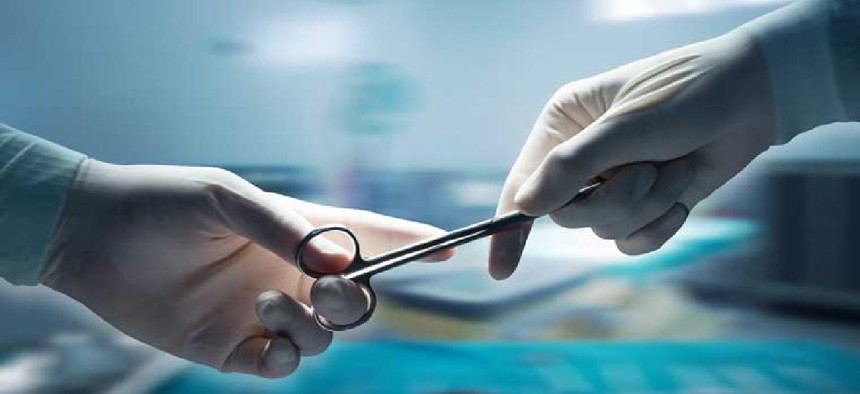AI compares medical rookies’ biomechanical skills to experts

Researchers are adopting artificial intelligence and markerless motion-capture technology to assess the biomechanical skills of medical trainees and provide feedback for improvement.
To improve the quality of medical care for military service members, researchers are adopting artificial intelligence and markerless motion-capture technology to assess the biomechanical skills of medical trainees and provide feedback for improvement.
“Simulation-based medical skill training, both initial and refresher training, require systematic, objective, high quality trainee evaluation and feedback,” the Army’s Medical Technology Enterprise Consortium said in a request for proposals. Unfortunately, MTEC said, evaluation and feedback on trainees’ performance are currently based on trainers’ standards rather than on an objective skill performance standard.
The Investigating Methods for Performance Overdrive (IMPROVE) program aims to address these assessment challenges. In December 2020, MTEC tapped the Southwest Research Institute (SwRI) to develop a simulation-based training system that compares the physical performance of medical trainees as they complete specific medical tasks -- such as suturing wounds -- to that of experts whose precise hand movements or physical orientations have been captured and analyzed in 3D with artificial intelligence.
SwRI will record physical movements with markerless motion capture technology, often used to assess the biomechanics of athletes. It relies on computer vision algorithms (rather than on body markers attached to a human subject) to capture motion in 3D data for biomechanical analysis. Researchers will then develop a machine learning system that can measure 3D spatial temporal biomechanics directly from 2D video data.
“Military medical training relies on subjective human evaluations where feedback may vary among trainers,” Dr. Dan Nicolella, who co-leads the Institute’s Human Performance Initiative, said in an announcement. “SwRI’s research will help both instructors and trainees to objectively observe how well they are performing a specific task, providing both a quantitative score, based on expert task performance, and task-specific feedback to improve performance.”
Once researchers can accurately model medical behaviors, MTEC would like extend the IMPROVE system so it can record, analyze and provide feedback to multiple trainees working on a coordinated activity and expand the program to other simulation-based training programs
Eventually MTEC wants to model the neural processes that direct performance of a skill, it said in the RFP, so it can optimize training by tailoring instruction to the neural processes that are responsible for learning.
NEXT STORY: Can 5G strengthen space-ground communications?





